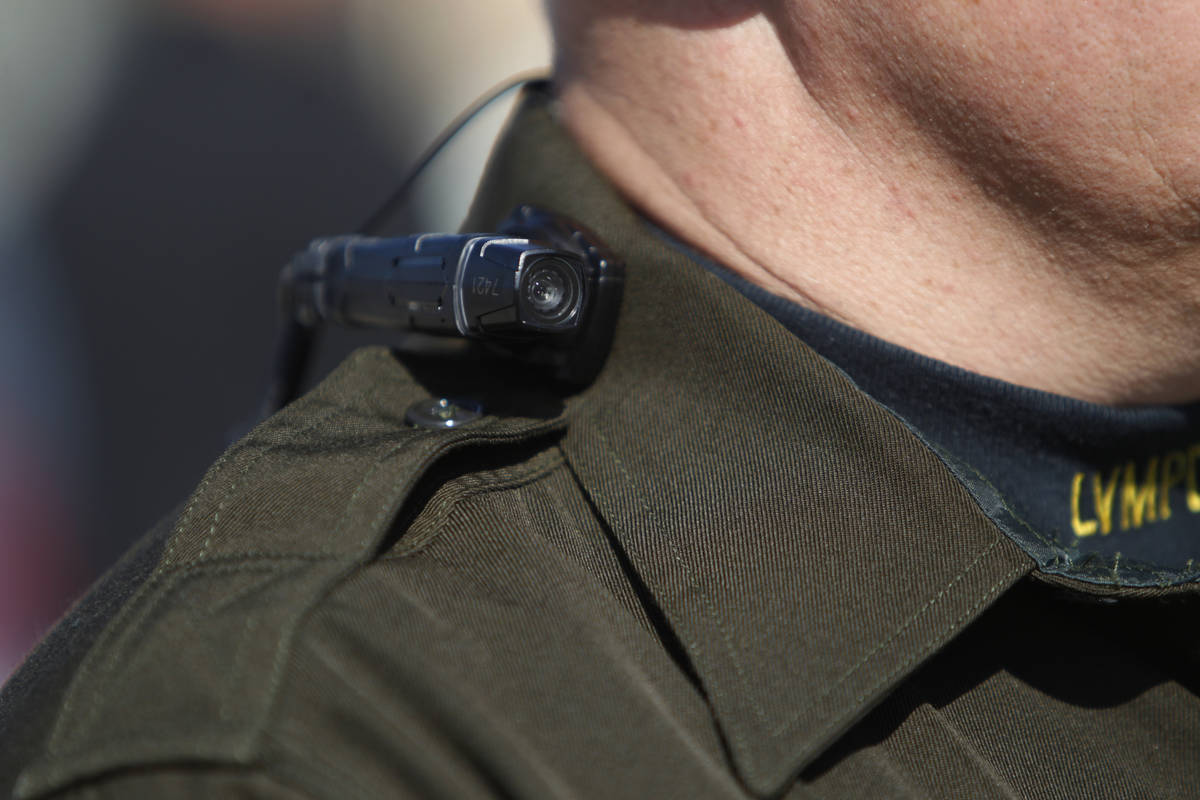EDITORIAL: Washoe reversed course on body camera fees. Metro should follow suit.
If only the Metropolitan Police Department had as much respect for the public as Washoe County Sheriff Darin Balaam.
Earlier this month, the Washoe County Sheriff’s Office proposed new fees for obtaining body camera footage. It asked the County Commission for permission to bill the public $200 an hour for complying with such requests. That’s not $200 for an hour of footage, which would be bad enough. It takes around an hour for staff to redact and process 10 minutes of footage. That translates to $1,200 for an hour of footage.
The new fees would have limited access to what has become a vital form of public record. Body cameras offer police officers protection from baseless charges. They also provide the public a way to hold officers who abuse their power accountable. This arrangement benefits both officers and members of the public who do the right thing.
But body cameras would provide less accountability if it became cost prohibitive to access those records.
There was another problem, too. As the Nevada Open Government Coalition noted, the sheriff’s office sought to raise fees to deal with an increase in requests for footage.
“Elected officials should be limiting barriers to public information about law enforcement, not raising them,” the group said in a statement objecting to the fees. Review-Journal reporter Rachel Crosby is a member of the group’s board.
Another problem is that Nevada law generally prohibits government agencies from charging fees that “exceed the actual cost to the governmental entity to provide the copy of the public record.” Washoe County has dozens of officers making more than $200,000 a year in total compensation, according to TransparentNevada.com. But even the most highly paid officer isn’t raking in $200 an hour.
To his credit, Mr. Balaam listened to the public and withdrew his request.
He should pick up the phone and call Sheriff Joe Lombardo. In July, Metro started charging $280 per hour of processed body camera footage. That’s a substantial increase from the $48 per hour it charged in 2014. In 2019, it was $192 an hour. Even union pay rates aren’t going up that fast.
Metro has an unfortunate reputation for hiding records or slow-walking requests for information. These exorbitant fees limit access to records. It’s safe to assume Metro sees this as one of the policy’s benefits, not a bug.
Undoubtedly, it costs money to redact confidential information from body camera footage. But Metro shouldn’t make it cost prohibitive to access public records.




























